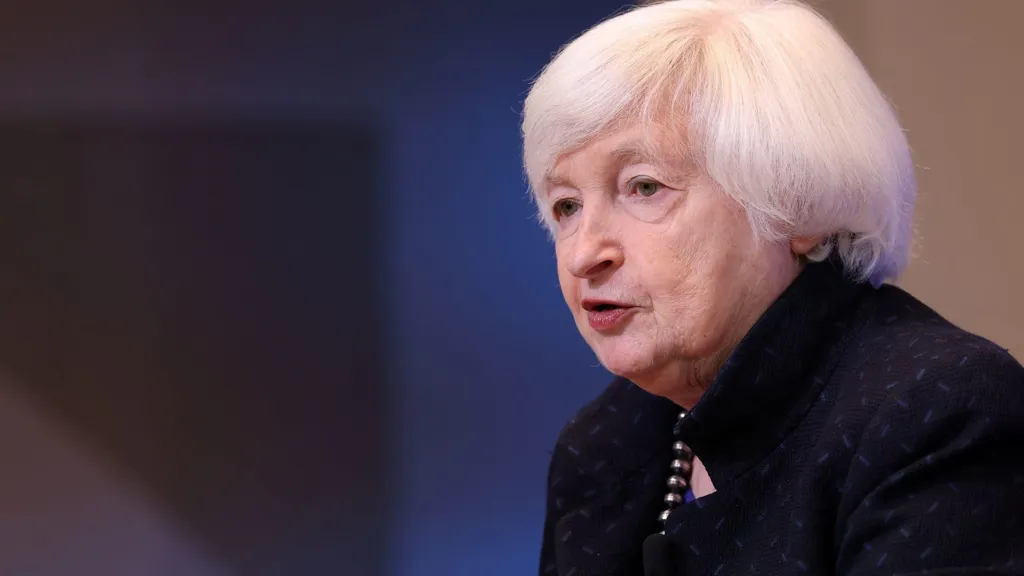U.S. Treasury Secretary Janet Yellen on Friday urged the incoming Trump administration to refrain from interfering with what she called critically important appropriate regulation of American banks' capital levels, liquidity and risk-taking.
Yellen, who has served as U.S. President Joe Biden's Treasury secretary since he took office in January 2021, said the current U.S. oversight system was not perfect, and it was legitimate to look for ways to reduce its regulatory burden.
But she warned against taking radical steps that would interfere with needed oversight or the current system of insuring banks' deposits, given the long history of bank failures triggering financial crises.
"I don't want to say that exactly what we have is utterly sacrosanct and couldn't possibly be touched. But I do not think it's broken. We've got a good system," Yellen told Reuters as she prepares to hand off to Scott Bessent, President-elect Donald Trump's nominee to be Treasury secretary.
Trump's return to office has raised the prospect of radical changes to the federal government's current structure and a regulatory framework put in place over decades to oversee financial services and banking, as well as digital currency.
"Bankers always complain about over-regulation," Yellen said. "It's legitimate to look for areas where the burdens of regulation exceed the benefits and to try to redress that. But appropriate regulation of capital, liquidity, risk taking and the like are critically important to a sound banking system and economy, and that should not be interfered with."
Yellen said she was troubled by a report that Trump's transition team was exploring ways to reduce, merge, or even eliminate the top bank regulators in Washington, but had no specific insight into their plans.
"We've seen what happens when banks are inappropriately supervised," she said, referencing the unexpected failures of Silicon Valley Bank and Signature Bank in March 2023, and others before them that had "created the possibility of a contagious financial crisis."
"The lessons we learned from those 100-plus years of history is that banks need to be supervised and regulated appropriately to greatly mitigate the odds of failure; that deposit insurance is a critical element in promoting safety and soundness and confidence in the system; and that there needs to be adequate access to liquidity when banks get in trouble," she said.
